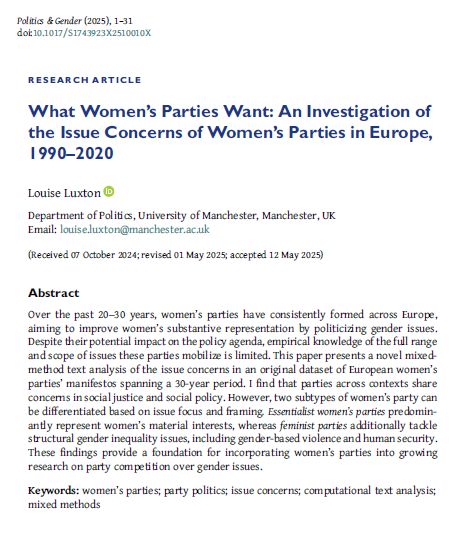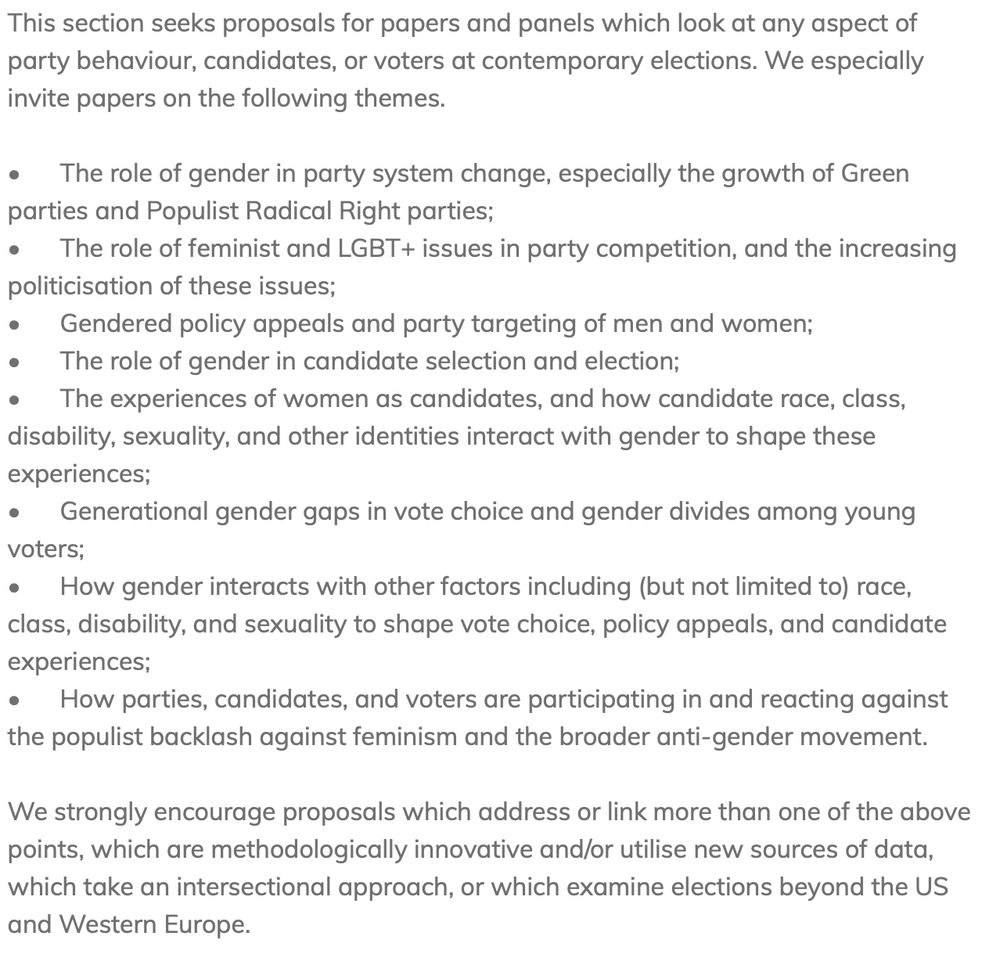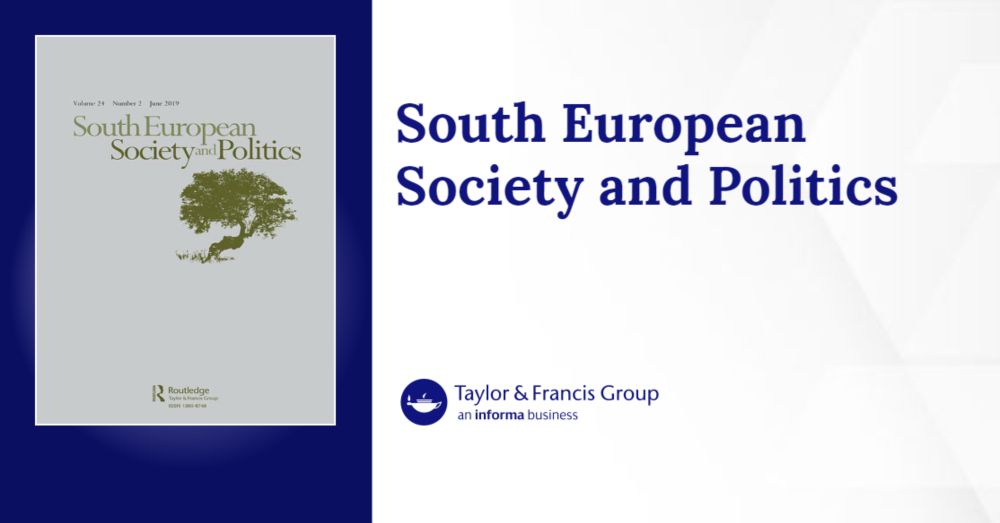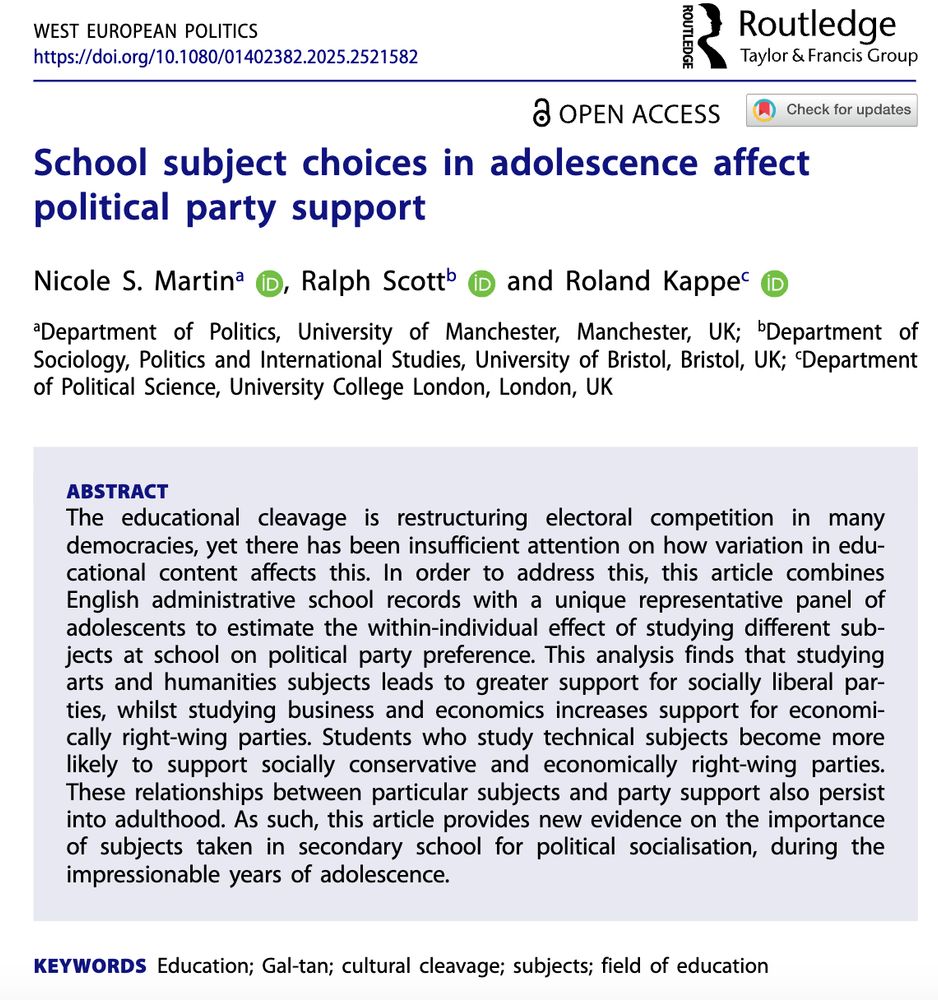Louise Luxton
@louiseluxton.bsky.social
560 followers
770 following
18 posts
Research Associate at the University of Strathclyde working on the ParliView project | Visiting researcher at the University of Manchester | Gender, political communication, political parties, text analysis (She/her)
Posts
Media
Videos
Starter Packs
Pinned
Reposted by Louise Luxton
Reposted by Louise Luxton
Reposted by Louise Luxton
Reposted by Louise Luxton
Reposted by Louise Luxton
GenElect Network
@genelectnet.bsky.social
· Nov 16











